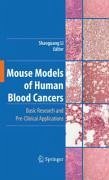
MicroRNA in Development and in the Progression of Cancer (eBook, PDF)
Versandkostenfrei!
Sofort per Download lieferbar
112,95 €
inkl. MwSt.
Weitere Ausgaben:

PAYBACK Punkte
56 °P sammeln!
miRNAs are a class of endogenous, small non-protein coding RNA molecules (~ 22 nucleotides) which are novel post-transcriptional regulators of gene expression. Since we have hundreds of miRNAs, the major challenge is now to understand their specific biological function. In fact the experimental evidence suggests that signaling pathways could be ideal candidates for miRNA-mediated regulation. Several studies suggest that miRNAs affect the responsiveness of cells to signaling molecules such as WNT, Notch, TGF-ß and EGFR. Altered expression of particular miRNAs has been implicated in the onset a...
miRNAs are a class of endogenous, small non-protein coding RNA molecules (~ 22 nucleotides) which are novel post-transcriptional regulators of gene expression. Since we have hundreds of miRNAs, the major challenge is now to understand their specific biological function. In fact the experimental evidence suggests that signaling pathways could be ideal candidates for miRNA-mediated regulation. Several studies suggest that miRNAs affect the responsiveness of cells to signaling molecules such as WNT, Notch, TGF-ß and EGFR. Altered expression of particular miRNAs has been implicated in the onset and development of cancer and could be used as potential biomarkers for the disease.
Recently, many studies have found miRNAs have crucial regulatory roles in Cancer stem cells (CSCs) a kind of tumor initiating cells (TICs) and dormancy. Findings also suggest that DNA methylation may be important in regulating the expression of many miRNAs in several cancer initiating cells. Several miRNAs are known to either upregulated or downregulated in CSCs when compared to non-cancerous cells from the same tissues. CSCs are a small subpopulation of cells identified in a variety of tumors and involve in self-renewal, differentiation, chemoresistance and tumorigenesis. The volume will give a comprehensive account of important advancements in the area of miRNAs and cancer.
Recently, many studies have found miRNAs have crucial regulatory roles in Cancer stem cells (CSCs) a kind of tumor initiating cells (TICs) and dormancy. Findings also suggest that DNA methylation may be important in regulating the expression of many miRNAs in several cancer initiating cells. Several miRNAs are known to either upregulated or downregulated in CSCs when compared to non-cancerous cells from the same tissues. CSCs are a small subpopulation of cells identified in a variety of tumors and involve in self-renewal, differentiation, chemoresistance and tumorigenesis. The volume will give a comprehensive account of important advancements in the area of miRNAs and cancer.
Dieser Download kann aus rechtlichen Gründen nur mit Rechnungsadresse in A, B, BG, CY, CZ, D, DK, EW, E, FIN, F, GR, HR, H, IRL, I, LT, L, LR, M, NL, PL, P, R, S, SLO, SK ausgeliefert werden.













